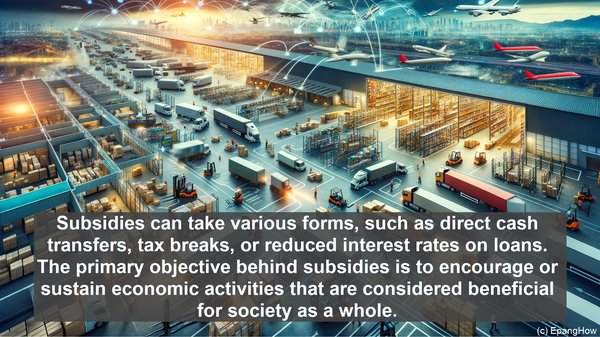Introduction: The Role of Government in the Economy
Hello, everyone! Welcome to today’s article on the intriguing world of economics. When it comes to the economy, the government plays a significant role through various policies and interventions. Two such policies that often come into play are subsidies and taxes. While both are tools used by governments, they have distinct purposes and implications. So, let’s dive in and explore the difference between a subsidy and a tax.
Subsidies: Fostering Growth and Support
A subsidy, in simple terms, is a financial aid or support provided by the government to individuals, businesses, or industries. It is usually given to promote a particular activity or to address a market failure. Subsidies can take various forms, such as direct cash transfers, tax breaks, or reduced interest rates on loans. The primary objective behind subsidies is to encourage or sustain economic activities that are considered beneficial for society as a whole. For instance, a government might provide subsidies to renewable energy companies to promote a greener future. Subsidies can also be targeted towards specific groups, such as low-income households, to alleviate financial burdens and ensure access to essential services.

Taxes: Financing Government Operations
On the other hand, taxes are financial charges imposed by the government on individuals, businesses, or goods and services. They serve as a major source of revenue for the government, enabling it to fund public services and infrastructure. Taxes can be levied in various ways, including income tax, sales tax, property tax, and corporate tax. The amount of tax paid is usually based on factors such as income, wealth, or the value of goods or services. The primary purpose of taxes is to generate revenue for the government’s functioning and to ensure a fair distribution of the financial burden among citizens. Additionally, taxes can also be used as a tool to influence economic behavior. For example, higher taxes on tobacco products can discourage their consumption, leading to potential health benefits.
Implications and Trade-offs
While subsidies and taxes have their respective roles, they also come with implications and trade-offs. Subsidies, although beneficial in many cases, can sometimes lead to market distortions or create dependency. They also require significant financial resources, which can impact the government’s budget. On the other hand, taxes, while necessary for government operations, can sometimes be seen as a burden, especially if they are perceived as unfair or if the tax system is complex. Striking the right balance between subsidies and taxes is crucial for governments, as it involves considering factors such as economic growth, social welfare, and fiscal sustainability.

